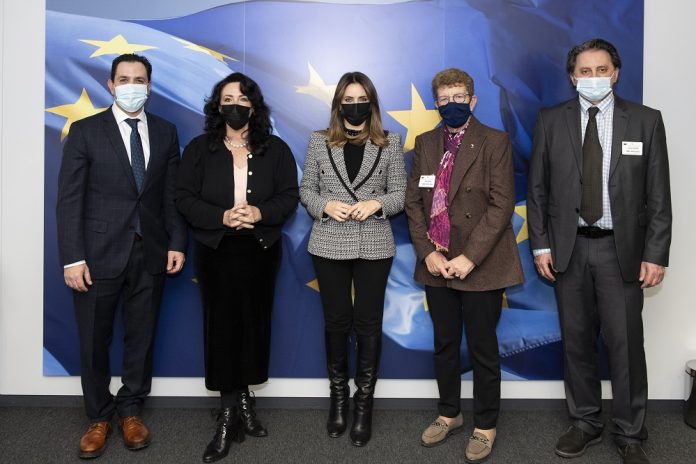The President of Special Olympics Malta Dr Lydia Abela said that next May’s Special Olympics in Malta will showcase the skills and abilities of Special Olympics athletes from Europe and beyond. while celebrating the resilience and perseverance of some 1,000 intellectually disabled athletes from 25 countries.
In a meeting with European Commissioner for Equality Helena Dalli in Brussels, Dr Lydia Abela said that sport unites and is a crucial tool for inclusion.
“Games in Malta will be a testament to how people with intellectual disabilities and others can learn together and live together in an equal and inclusive way,” said Special Olympics Malta President Dr Abela. as explained that in addition to the competitive games in six sports disciplines – swimming, athletics, football, table tennis, bocce and tenpin bowling – there will be a water polo game between athletes with different skills and abilities (unified).
On the eve of the opening of the games, a forum will be held in collaboration with the University of Malta for professionals, students, parents and athletes on the inclusion in sport for people with intellectual disabilities in the education system.
During the meeting, Dr Abela, the President of Special Olympics in Europe David Evangelista, the Director of Special Olympics Malta Anna Calleja and the Vice President of Special Olympics in Europe Christo Velkov invited the European Commissioner. for Equality Helena Dalli to come to Malta for the Special Olympics Games between the 14th and 17th of May.
“Special Olympics must be the most important and strong partner in the European Commission’s vision for a more inclusive and equal Europe, where people with disabilities have easy access to all opportunities to reach their full potential. said David Evangelista, President of Special Olympics in Europe.
European Commissioner for Equality Helena Dalli said she was looking forward to the Special Olympics in Malta, as well as to linking the goals of Special Olympics with the Equality Union and the rights of people with disabilities in the European Union.










